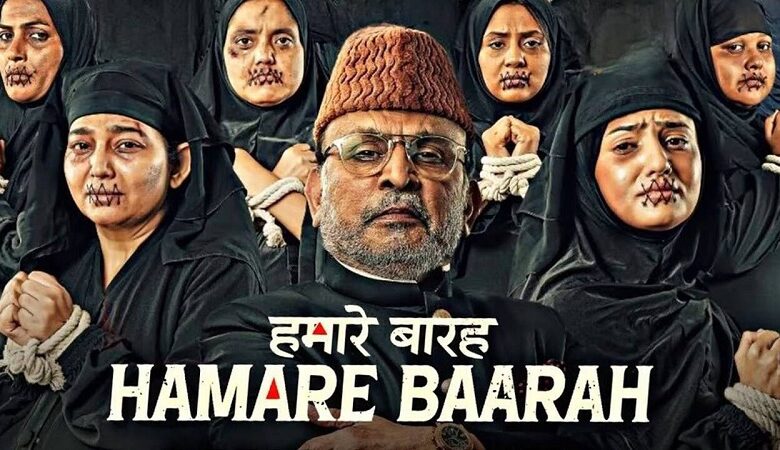Unpacking the Controversial Film “HamareBaarah”: A Critical Examination

News Mania Desk/ Agnibeena Ghosh/23rd June 2024
The film “HamareBaarah” has found itself at the center of heated debate, much like its predecessors “The Kashmir Files” and “The Kerala Story.” Directed by Kamal Chandra, this latest entry in what feels like a trilogy of contentious narratives attempts to tackle significant societal issues through what some critics are calling flawed storytelling.
Criticism of the film echoes similar critiques leveled at “The Kashmir Files” and “The Kerala Story.” Director Vivek Agnihotri defended his film with purported evidence, while the makers of “The Kerala Story” held a press conference to substantiate their portrayal of societal issues. Now, “HamareBaarah” faces its turn to defend its narrative choices amidst the storm of controversy it has stirred.
The film opens with what some viewers describe as pretentious and tacky scenes. The portrayal of a Muslim woman seeking justice in the Uttar Pradesh High Court is marred by what critics call dated filmmaking techniques and uncomfortable characterizations. Actress Ashwini Kalsekar’s introduction, aimed at establishing her character’s courtroom prowess, falls flat, further detracting from the film’s credibility.
Despite its controversial reception, the filmmakers stand firm, likely pointing to real-life instances of domestic abuse to justify their portrayal. The performances, including Annu Kapoor’s, are seen as overly serious and lacking nuance, prompting accusations of reinforcing stereotypes rather than challenging them. The film’s depiction of women, portrayed as helpless victims without agency, has also sparked significant backlash, with critics condemning it as regressive rather than progressive storytelling.
While the film attempts to address important topics such as population control, its heavy-handed approach with a bombastic score has drawn criticism for turning what could have been a nuanced exploration into a preachy narrative. The lack of subtlety in conveying its message undermines its potential impact, according to critics.
Lead actress Kasbekar’s performance is highlighted as one of the film’s stronger aspects, despite the overall execution falling short of expectations. Her impassioned monologues, while commendable, struggle to resonate amidst the film’s overarching flaws in storytelling and characterization.
In conclusion, “HamareBaarah” finds itself in a familiar position of defending its narrative choices amidst controversy. Critics argue that while the film tackles significant societal issues, its execution leaves much to be desired. The debate surrounding the film mirrors previous controversies faced by similar productions, highlighting ongoing tensions between artistic expression and responsible storytelling.
As discussions continue to swirl around “HamareBaarah,” it remains to be seen how its legacy will unfold in the annals of Indian cinema, serving as a reminder of the complexities and challenges of addressing sensitive societal issues on the big screen.






